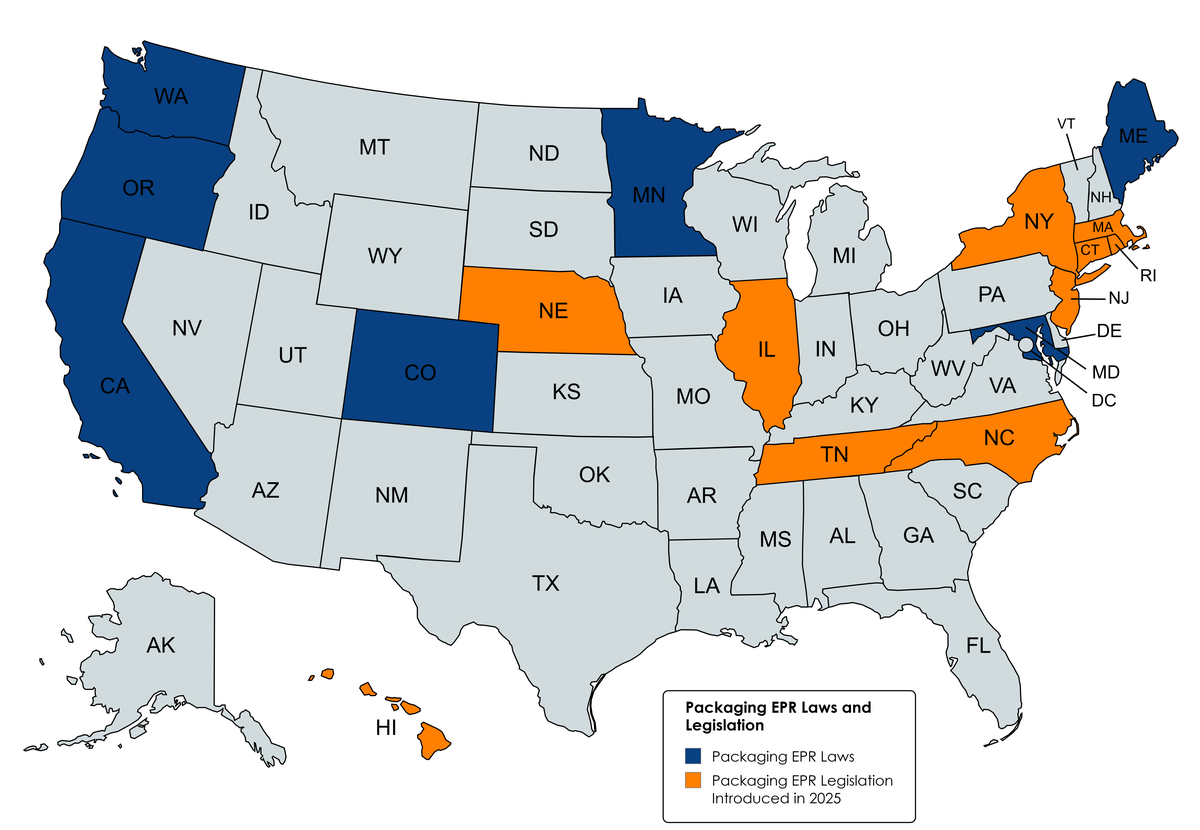NAW Considering Legal Challenge to Extended Producer Responsibility Laws

The first of a new kind of state law that would make companies responsible for the entire lifecycle of the products they sell is set to go into effect at the beginning of July.
The extended producer responsibility (EPR) laws are a policy approach that would require producers — including wholesale distributors — that sell packaged items, food serviceware, certain types of equipment, and plastic or paper products to join a producer responsibility organization (PRO). Companies would be required to pay an assessed fee to the PRO, which would, in turn, fund the end-of-life processing or recycling of those materials. The intended goal of these laws is to promote waste reduction and incentivize product design that minimizes environmental impacts; however, they also impose burdensome regulatory requirements and new costs on businesses.
Seven states — Washington, Oregon, California, Colorado, Minnesota, Maryland, and Maine — have already passed EPR laws, and similar legislation has been introduced this year in eight more states. As of now, the first state where an EPR law will go into effect is Oregon, which has a July 1, 2025, implementation date.
Citing significant confusion, the National Association of Wholesaler-Distributors (NAW) sent a letter earlier this month to Oregon state officials urging a one-year delay to July 1, 2026.
“Oregon’s recycling law will have far-reaching consequences for distributors nationwide who sell and distribute products into the state,” Brian Wild, chief government relations officer at NAW, said in a statement. “Moving forward with enforcement while key questions remain unanswered is irresponsible. Distributors operate on extremely tight margins, and the threat of over-reporting to avoid penalties could force companies to make tough decisions, including staff reductions. At this late date, there are more questions than answers. Oregon should delay implementation to give regulators time to provide the clarity needed to comply without jeopardizing jobs or business operations.”
In a message to distributors, NAW indicated it was considering a legal challenge to Oregon’s EPR law.
